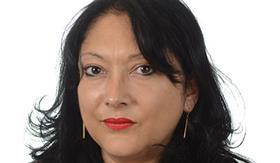Just a few more days to go until the Glastonbury of the property world, the annual jamboree that is Mipim.

I have packed the sensible footwear (sigh), wrestled with the concept of glamorous casual attire (as specified on one of the invites)… packed the non-sensible footwear (see aforementioned dress code). And now, I’m raring to go.
Whether it will be akin to Freshers Week as feared by Urban Splash’s Tom Bloxham, who reckons this year resembles the heady days of 2007 before the fall when Mipim was tossed out as a bonus-style reward to industry newbies, the coming days will tell.
One thing I do know is that it is going to be a heck of a lot bigger than anything I’ve experienced before. Some 21,000 delegates are expected, the same as last year, but a good third more than the last time I went.
Tellingly, they hail from 93 countries compared with just 58 back then. No doubt the current international uncertainty and this year’s theme - the digital revolution - will be hotly debated and we tackle both issues in this special international issue.
In terms of the first, whatever anxieties are coming to the fore in the run up to the UK general election, they are nothing compared with the unease, indeed unrest, in Greece at the moment. After a strong year in 2014, the property market there has dropped off a cliff. Now, it is playing a waiting game - with the outcome dependent on how successful the unlikely bedfellows of a left wing government and right wing industry are in keeping investment within Greece.
The uncertainty is forcing investors to look at other markets perceived to be more politically stable, such as Italy (or should that be even Italy?). Tellingly ‘uncertainty’ is also the word singled out in this week’s Knight Frank Wealth Report to describe the current state of the global economy - although the safe havens investors are seeking are not quite as safe as they once were, it seems.
The report, which focuses on ultra high net worth private investors, reveals they are moving up the risk curve and buying into a broader range of assets. However, while it highlights the “globalisation of demand” as more wealth creation leads to more requirements for residential and commercial property in the key global hubs, there is a caveat. It also notes that “protectionism”, whether through higher property taxation, restrictions on foreign buyers or even tighter capital controls in some markets, is acting as a check to some degree on global demand.
“Ultimately we will see a much greater focus on transparency, compliance and Know Your Client regulations as markets become more globalised over time,” predicts Liam Bailey, global head of research at Knight Frank
“For mature markets like London, this is an opportunity.”
Digital is shaping spaces
For less developed markets - or more volatile ones - that is not so likely to be the case, despite the appetite for greater risk. That said, Tel Aviv is not necessarily the first market that springs to mind as one of the world’s safest havens. Yet, thanks to its burgeoning tech community, it is turning into one of the most interesting property markets around. Ditto Berlin.
It is not so much the technology itself but the small businesses developing it that are laying the foundations for what could be the global power houses of the future… if the property industry is nimble enough to adapt to meet their needs, that is.
Speaking of nimble, I’ve got a plane to catch. See you in Cannes!






























No comments yet